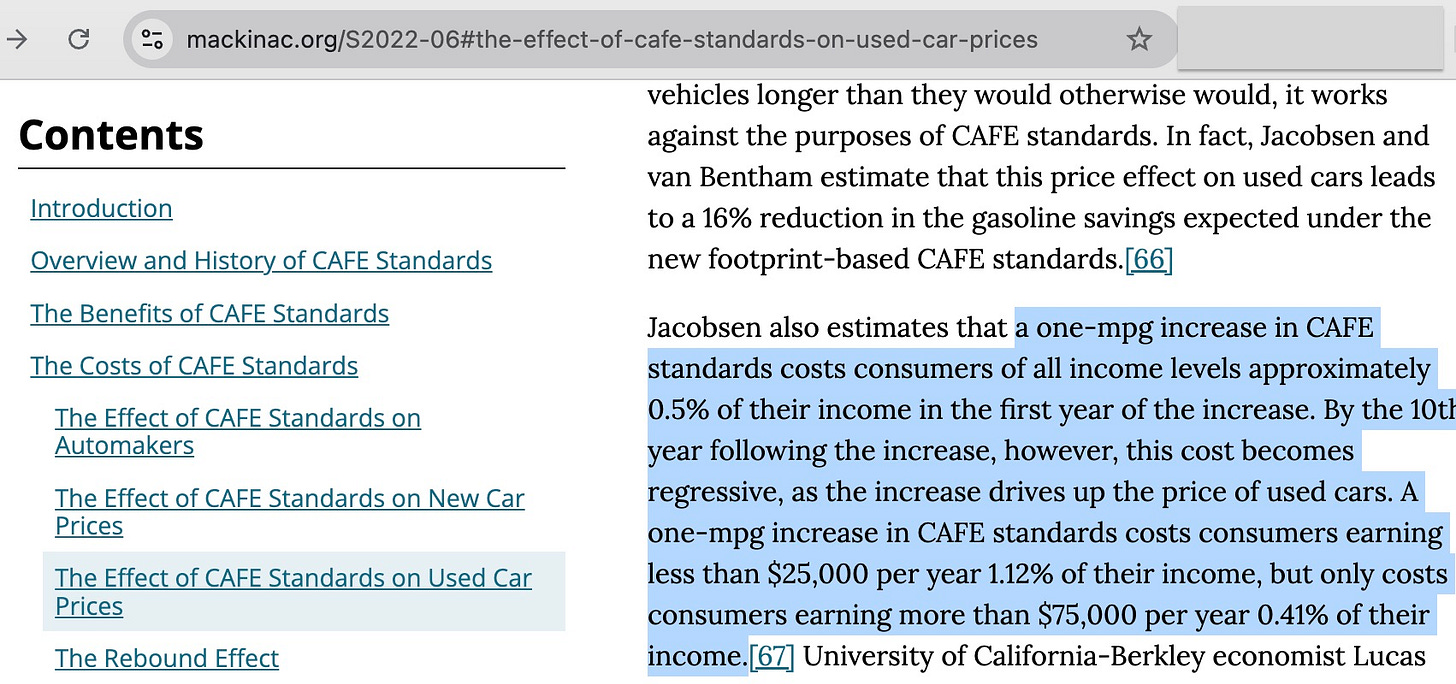Policy Informed by A.I. Making Stuff Up?
I grok that it is.
The Trump Administration isn’t leading, following, or getting out of the way.
They’re getting in the way of sustainability.
This was expected. During Trump’s first term in office, the Trump Administration reversed, revoked, or otherwise rolled back more than 100 environmental rules, including rules meant to safeguard public health.

What is not normal is how the Trump Administration does it.
In an effort to explain his decisions, Trump often produces a Gish gallop of lies, often misrepresenting decisions as beneficial to most Americans including, indeed, saying he’s not breaking the law if he’s saving the country.
In Trump’s first Administration, the volume and frequency of lies overwhelmed even highly resourced journalism outlets. For example, at the beginning of Trump’s first administration, The New York Times decided to start cataloging Trump’s “outright lies.” As the newspaper warned Americans, although we have become accustomed to his lies, the “country should not allow itself to become numb to them.” By late 2017, however, The New York Times abandoned the effort and stopped updating its list.
Now, it appears, the Trump Administration is also using A.I. to generate lies, too, including drafting articles to make it appear that the Administration is basing policy decisions on, among other things, sustainability research.
This was published yesterday, March 4, 2025:

I first experienced A.I. misattribution when I was the digital managing editor of American Scientist magazine. In 2017, we had just re-launched the magazine’s website and were in the process of converting the digital archive. I received an email from a subscriber flummoxed in looking for an archived article. The reason the subscriber couldn’t find the article was because the article didn’t exist. The subscriber told me he was using A.I. to do online research. Apparently, the A.I. had entirely made up the article, complete with bibliographical reference.
The text misattributed by the Trump Administration to Jacobsen actually comes from Christopher C. Douglas in a publication from the Mackinac Center for Public Policy.

So, presuming A.I. was used, it didn’t make up the quote, it just misattributed it. But Douglas’s “quote,” as it were, is lifted out of context of Douglas’s whole article (e.g., notice the highlighted section at the left is about CAFE standards on used car prices) and is summarizing only one of many estimates from Jacobsen’s 40-page research paper from 2013 (linked as “[67]” in the above screenshot).
Douglas’s summary of Jacobson’s estimate also bypasses many important caveats, which Jacobsen took pains to list in his research paper and briefly discussed with me when I spoke with him this afternoon. From the paper itself:
“Principle (sic) among [caveats in the model and points for future research] is closer consideration of the induced technological change prompted by fuel economy regulation, particularly as it relates to the footprint-based standards. A deeper understanding of the demand-side tradeoffs between fuel economy and vehicle attributes like weight and horsepower is also essential in approaching this issue. My findings here provide a starting point for this ongoing research and present a base of empirical conclusions about firm behavior and efficiency costs under CAFE regulation.”
Indeed, Jacobsen’s 2013 research paper is a “starting point,” and he told me today he was surprised that anyone would reference it, particularly as he has co-authored a more recent research article (2020) on the same topic.
The person who did reference Jacobsen’s 2013 research paper, Douglas, recommended at the end of his 2022 analysis that it would be better to abolish CAFE standards and replace them with a fuel tax, a conclusion Jacobsen told me today is supported by his research, too.
But that is not at all what the Trump Administration is doing.
Instead, the Trump Administration is “resetting” the CAFE standards, or as Transportation Secretary Sean Duffy put it in a January 28, 2025 memo from “The Secretary” and distributed within hours of his being sworn in, “I direct NHTSA at the earliest opportunity to propose the rescission or replacement of any fuel economy standards as determined necessary to bring the CAFE program into compliance with Administration policy and the requirements of the law.”
And they’re making it look like these decisions are informed by sustainability research.
Have you seen other sustainability research misrepresented by the Trump Administration?


